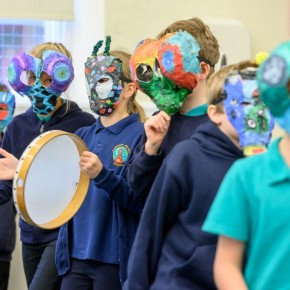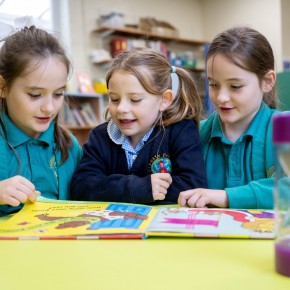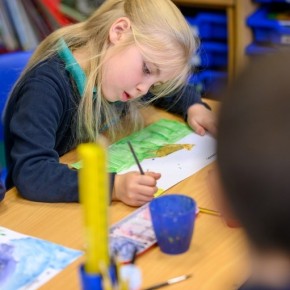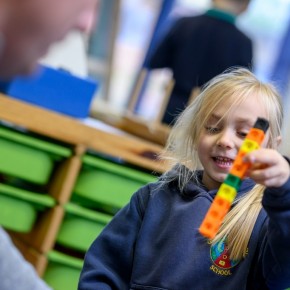Art and Design
Art, craft, and design embody some of the highest forms of human creativity. The curriculum at Corpusty is structured to provide each child with the opportunity to experience it in all its forms and media and to develop a broad range of skills so that they can create their own effective and visually-pleasing end products.
The art and design curriculum is taught through formal elements, such as developing an understanding of colour, line and form, exploring mediums, generating ideas, evaluating and having a knowledge of artists and their work.
Computing
The curriculum offer at Corpusty will equip the pupils to use computational thinking and creativity to begin to form ideas that could change the world around them.
The computing curriculum is taught through an understanding of algorithms and coding, computer literacy, a knowledge of programs and programming language as well as an extensive knowledge and understanding of e-safety.
Design and Technology
Design and technology is an inspiring, rigorous, and practical subject. Design and technology is approached through the teaching of mechanical systems and structures, food and textiles. Key skills such as design, construction and evaluation are taught as well as knowledge of processes and materials.
Geography
The curriculum offer at Corpusty will inspire its pupils to be curious and fascinated about the world in which they live and the variety of people, cultures and traditions in the world that will stay with them for life. In Geography children have the opportunity to learn investigative skills and use field work to learn key geographical knowledge and locations.
The subject is taught through ‘Big Ideas’, such as environment, interconnection, change and sustainability, running through the knowledge-based curriculum.
History
The history curriculum at Corpusty will provide its pupils with a coherent knowledge and understanding of Britain’s past and that of the wider world. It will encourage them to be curious about the past and give them the skills to ask perceptive questions, think critically and robustly challenge evidence and information presented to them. This is taught through ‘Big Ideas’, such as Progress, Power, Kingdom, Religion and Economy, running through the knowledge-based curriculum.
Languages
Learning a foreign language is a liberation from insularity and provides an opening to other cultures; this links closely to our curriculum goal of broadening the children’s horizons beyond their own small, rural community. At Corpusty we aim to teach languages in key stage one using simple songs and activities as part of the broad curriculum offer. In key stage two this is expanded into learning about the language through both written, oral and auditory responses, as well as being able to learn about the corresponding culture of that language.
Music
Music is a universal language that embodies one of the highest forms of creativity. At Corpusty each child will have the opportunity to learn to play a musical instrument including the recorder, the ukulele or the glockenspiel and perform as part of a group and/or solo. The children will have the opportunity to take part in performances for their parents, and the wider community. The music curriculum encompasses elements including composing, improvisation and listening and performing. Across the whole school, children will learn a variety of songs for performances and assemblies as well developing a love of singing and beginning to recognise the well-being benefits of singing together.
PHSE +RSE
Our PHSE curriculum at Corpusty is taught through PATHS (Promoting Alternative Thinking Strategies). The PATHS programme is designed to facilitate the development of self-control, emotional awareness and interpersonal problem-solving skills. The programme is taught discretely and embedded into the school day through compliments of the day and the ‘turtle’ and ‘traffic light’ calming methods. The teaching of PHSE embodies ‘Big Ideas’ such as self-esteem, emotions, identity and friendship. Alongside PHSE we also teach RSE (Relationships and Sex Education) where the children explore health, bodies and sexuality, they begin to gain key knowledge and understanding about safe choices and consent.
RE
The study of RE provides children with a sense of enquiry and curiosity as well as a desire to learn more about the cultures, faiths and beliefs in the world they live and interact in. At Corpusty Primary School we follow the Norfolk Syllabus for RE, having a primary focus on Christianity but also exploring many other major world faiths including Judaism, Islam, Hinduism, Sikhism and Buddhism; key areas of study around Humanism and Philosophy feature prominently in the curriculum as well. We teach this knowledge through thematic ‘Big Ideas,’ such as, family, identity and belonging, remembering, religion and humanity. Visits to places of worship form a part of the curriculum also.





